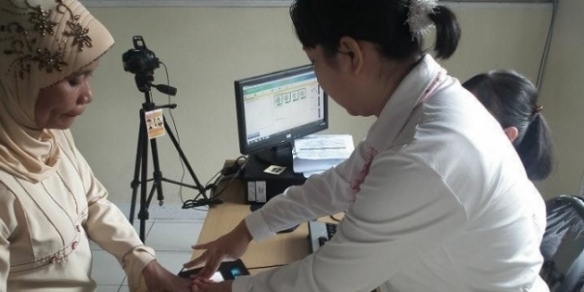ICT salaries rising, growing disparity with management however
By Goh Thean Eu July 22, 2015
- Average salary of ICT professionals rose 7.9% in 2014, to grow 7.4% this year
- ICT industry itself set to grow 14.2% this year to RM70.9bil, says Pikom

ALTHOUGH Malaysia’s economic growth is expected to slow down this year, the information and communications technology (ICT) sector is set for strong growth, while salaries are also expected to rise, according to the National ICT Association of Malaysia (Pikom).
However, there is a growing disparity between the salaries of lower- and higher-ranked staff.
Salaries are expected to rise for ICT professionals, including fresh graduates making their debut in the industry, the association said.
Based on the Pikom ICT Job Market Outlook report, the average salary of ICT professionals in Malaysia rose 7.9% in 2014 to RM7,706. This was also a 36% increase from the average salary of RM5,626 in 2010. [RM1 = US$0.26]
The average salaries took into account the salaries of fresh graduates and young executives, all the way to senior management.
While the average salaries for ICT fresh graduates rose 5.9% in 2014, the average salaries for senior management jumped 9.5%.
The report revealed a salary disparity of 6.22 times between senior managers and fresh graduates, compared with a salary disparity of 4.95 times in 2010.
“This is attributed to a higher demand for experienced professionals, with the talent pool being limited in Malaysia,” said Pikom’s research committee chairman Woon Tai Hai.
“With a tight employment market, this could present various challenges for companies to attract and retain graduates in the long-term,” he added.
The report also estimated that by the end of this year, the average salary of ICT professionals will break the RM8,000 barrier after growing 7.4% to hit RM8,278.
“Despite the slower economic growth anticipated for 2015, the industry is expected to register double-digit growth of 14.2% [versus 12.5% growth in 2014] while providing a healthy increase in salaries for ICT professionals and positive prospects for future job-seekers in many niche areas,” said Pikom chairman Cheah Kok Hoong.
“ICT continues to be a major job market for the country,” he told a July 21 press briefing on the findings of the Pikom ICT Job Market Outlook report at the association’s headquarters in Petaling Jaya.
The report is based on raw data collated from online recruitment company JobStreet.com and other sources. It covers 24 industry classifications from four services segment: ICT hardware, ICT software, call centres/ ICT-enabled services, and telecommunication services.
Hope for fresh grads
In 2014, the average salary for ICT fresh graduates rose 5.9% to RM2,581, and is expected to grow 6.6% this year to hit RM2,752.
However, Cheah stressed that this does not mean that fresh graduates should be asking for RM2,752 from their prospective employers, as large multinationals and small and medium enterprises (SMEs) have different a pay range for fresh graduates.
“I think it also differs from industry – some industries may offer lower salaries but have good perks,” he added.
Zooming in on the various sub-sectors, the semiconductor and wafer fabrication industry paid the highest monthly salary of RM3,280 for fresh graduates in 2014, while the wholesale/ retail/ trading industry paid the lowest at RM2,075.
Other employers which paid an average monthly salary of less than RM2,500 to ICT fresh graduates were the printing/ publication business (RM2,300); hotel/ restaurant/ food services (RM2,340); telecommunications (RM2,375); construction (RM2,494); and education (RM2,433).
“Although our ICT fresh graduate’s basic salary is increasing, it is still lower compared with developed markets,” said Woon.
Industry to grow

Even though the implementation of the Goods and Services Tax (GST) has impacted most industries, Pikom’s Cheah believes that it will not have a major negative effect on the ICT industry.
In fact, Pikom expects the ICT industry to grow 14.2% to reach RM70.9 billion this year.
“Subsequently, the share of the ICT services sector to GDP (gross domestic product) is expected to almost double from 3.3% in 2000 to 6.4% in 2015,” said Cheah.
The contribution of telecommunication services to the overall ICT services value may drop to 58.4% this year from 61.4% in 2014, while the computer services segment is expected to increase to 26.5% this year from 23.8% in 2014.
Cheah attributed the changes in growth and sectorial shares as being partly driven by the rising popularity of cloud computing, big data analytics, Software-as-a-Service, social media applications, The Internet of Things, and wearable technology.
Related Stories:
Malaysian ICT salaries trail SEA region ... again
Disrupt: Batten down the hatches, gonna be a bad year
GST to cause 30% plunge in ICT sales: Pikom
GST to boost Malaysia’s enterprise software market: IDC
For more technology news and the latest updates, follow us on Twitter, LinkedIn or Like us on Facebook.


